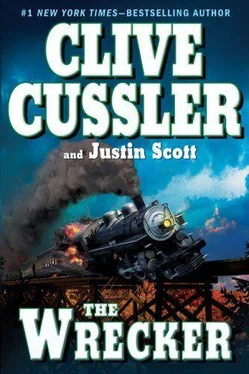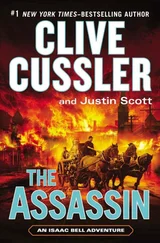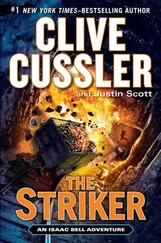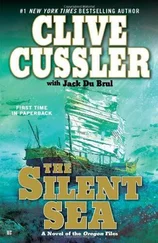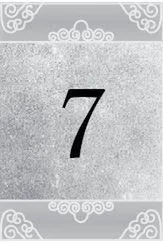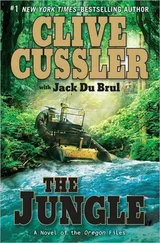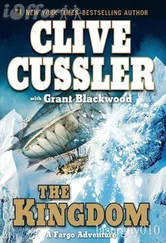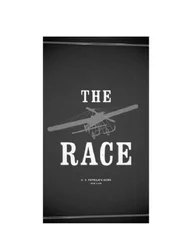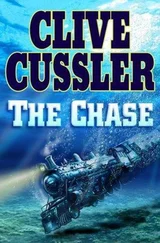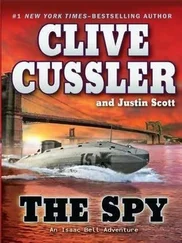“You’re not telling me anything I don’t already know,” Hennessy snapped. “Four track layers and a locomotive engineer dead. Ten off the job with broken limbs. Construction delayed eight days.”
“And one railway police detective crushed to death in the pioneer tunnel.”
“What? Oh yes. I forgot. One of my cinder dicks.”
“His name was Clarke. Aloysius Clarke. His friends called him Wish.”
“We knew the man,” Joseph Van Dorn explained. “He used to work for my agency. Crackerjack detective. But he had his troubles.”
Bell looked each person in the face, and in a clear voice spoke the highest compliment paid in the West. “Wish Clarke was a man to ride the river with.”
Then he said to Hennessy, “I stopped in hobo jungles on my way here. Outside Crescent City on the Siskiyou line”-he pointed on the map at the north coast of California-“I caught wind of a radical or an anarchist the hobos call the Wrecker.”
“A radical! Just like I said.”
“The hobos know little about him, but they fear him. Men who join his cause are not seen again. From what I have gleaned so far, he may have recruited an accomplice for the tunnel job. A young agitator, a miner named Kevin Butler, was seen hopping a freight train south from Crescent City.”
“Toward Eureka!” Hennessy broke in. “From Santa Rosa, he cut up to Redding and Weed and onto the Cascades Cutoff. Like I’ve been saying all along. Labor radicals, foreigners, anarchists. Did this agitator confess his crime?”
“Kevin Butler will be confessing to the devil, sir. His body was found beside Detective Clarke’s in the pioneer tunnel. However, nothing in his background indicates the ability to carry out such an attack by himself. The Wrecker, as he is called, is still at large.”
A telegraph key rattled in the next room. Lillian Hennessy cocked her ear. When the noise stopped, the telegrapher hurried in with his transcription. Bell noticed that Lillian did not bother to read what was written on the paper, as she said to her father, “From Redding. Collision north of Weed. A workmen’s train fouled a signal. A materials train following didn’t know the freight was in the section and plowed into the back of it. The caboose telescoped into a freight car. Two train crew killed.”
Hennessy leaped to his feet, red faced. “No sabotage? Fouled a signal, my eye. Those trains were bound for the Cascades Cutoff. Which means another delay.”
Joseph Van Dorn stepped forward to calm the apoplectic railroad president.
Bell moved closer to Lillian.
“You know the Morse alphabet?” he asked quietly.
“You’re observant, Mr. Bell. I’ve traveled with my father since I was a little girl. He’s never far from a telegraph key.”
Bell reconsidered the young woman. Perhaps Lillian was more than the spoiled, headstrong only child she appeared to be. She could be a font of valuable information about her father’s inner circle. “Who is that lady who just joined us?”
“Emma Comden is a family friend. She tutored me in French and German and tried very hard to improve my behavior”-Lillian blinked long lashes over her pale blue eyes and added-“at the piano.”
Emma Comden wore a snug dress with a proper round collar and an elegant brooch at her throat. She was very much Lillian’s opposite, rounded where the younger woman was slim, eyes a deep brown, almost black, hair dark, lustrous chestnut with a glint of red, constrained in a French twist.
“Do you mean you were educated at home so you could help your father?”
“I mean that I was kicked out of so many eastern finishing schools that Father hired Mrs. Comden to complete my education.”
Bell smiled back. “How can you still have time for French and German and the piano when you’re your father’s private secretary?”
“I’ve outgrown my tutor.”
“And yet Mrs. Comden remains … ?”
Lillian responded coolly. “If you have eyes, Mr. Detective, you might notice that Father is very fond of our ‘family friend.”’
Hennessy noticed Isaac and Lillian talking. “What’s that?”
“I was just saying that I’ve heard it said that Mrs. Hennessy was a great beauty.”
“Lillian didn’t get that face from my side of the family. How much money are you paid to be a detective, Mr. Bell?”
“The top end of the going rate.”
“Then I have no doubt you understand that as the father of an innocent young woman, I am obliged to ask who bought you those fancy clothes?”
“My grandfather Isaiah Bell.”
Osgood Hennessy stared. He couldn’t have been more surprised if Bell had reported he had sprung from the loins of King Midas. “Isaiah Bell was your grandfather? That makes your father Ebenezer Bell, president of the American States Bank of Boston. Good God Almighty, a banker?”
“My father is a banker. I am a detective.”
“ My father never met a banker in his life. He was a section hand, pounding spikes. You’re talking to a shirtsleeve railroader, Bell. I started out like he did, spiking rails to ties. I’ve carried my dinner pail. I’ve done my ten hours a day up through the grades: brakeman, engineer, conductor, telegrapher, dispatcher-up the line from track to station to general office.”
“What my father is trying to say,” said Lillian, “is that he rose from pounding iron spikes in the hot sun to driving ceremonial gold spikes under a parasol.”
“Don’t mock me, young lady.” Hennessy yanked another chart down from the ceiling. It was a blueprint, a fine-lined copy on pale blue paper that depicted in exquisite detail the engineering plans for a cantilevered truss bridge that spanned a deep gorge on two tall piers made of stone and steel.
“This is where we’re headed, Mr. Bell, the Cascade Canyon Bridge. I hauled a top-hand engineer, Franklin Mowery, out of retirement to build me the finest railroad bridge west of the Mississippi, and Mowery’s almost finished. To save time, I built it ahead of the expansion by routing work trains on an abandoned timber track that snakes up from the Nevada desert.” He pointed at the map. “When we hole through here-Tunnel 13-we’ll find the bridge waiting for us. Speed, Mr. Bell. It’s all about speed.”
“Do you face a deadline?” asked Bell.
Hennessy looked sharply at Joseph Van Dorn. “Joe, can I assume that confidences are as safe with your detectives as they are with my attorneys?”
“Safer,” said Van Dorn.
“There is a deadline,” Hennessy admitted to Bell.
“Imposed by your bankers?”
“Not those devils. Mother Nature. Old Man Winter is coming, and when he gets to the Cascades that’s it for railroad construction ‘til Spring. I’ve got the best credit in the railroad business, but if I don’t connect the Cascades Cutoff to the Cascade Canyon Bridge before winter shuts me down even my credit will dry up. Between us, Mr. Bell, if this expansion stalls, I will lose any chance of completing the Cascades Cutoff the day after the first snowstorm.”
Joseph Van Dorn said, “Rest easy, Osgood. We’ll stop him.”
Hennessy was not soothed. He shook the blueprint as if to throttle it. “If these saboteurs stop me, it’ll take twenty years before anyone can tackle the Cascades Cutoff again. It’s the last hurdle impeding progress in the West, and I’m the last man alive with the guts to clear it.”
Isaac Bell did not doubt that the old man loved his railroad. Nor did he forget the outrage in his own heart at the prospect of more innocent people killed and injured by the Wrecker. The innocent were sacred. But foremost in Bell’s mind at this moment was his memory of Wish Clarke stepping in his casual, offhanded way in front of a knife intended for Bell. He said, “I promise I will stop him.”
Читать дальше
